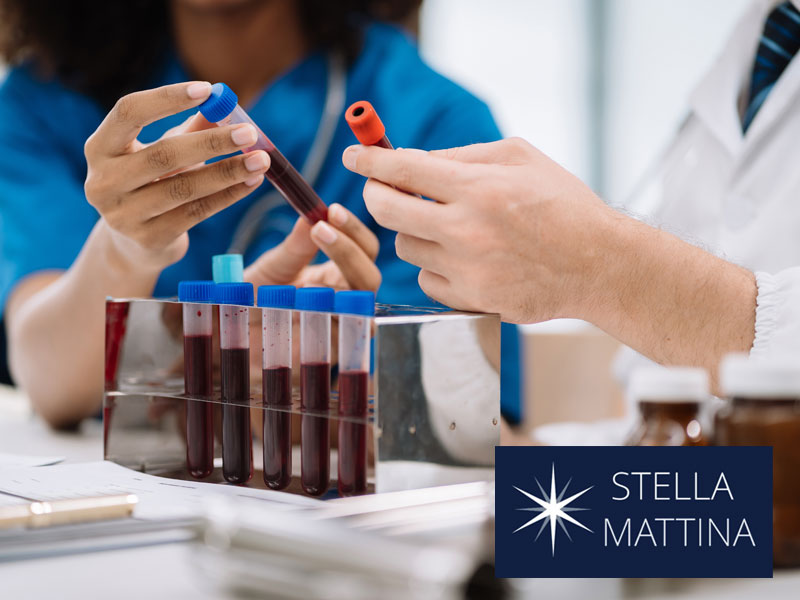
Sexual health is a vital aspect of your overall well-being, and regular testing for sexually transmitted diseases (STDs) plays a crucial role in maintaining both individual and public health. Here, we’ll provide you with an in-depth look at what a full STD panel consists of, the importance of testing, and what you should expect when you come in for one.
What Is a Full STD Panel?
A full panel STD test is a comprehensive screening designed to detect multiple STDs through various blood tests, urine samples, or swabs.
These tests help identify both active infections and past exposure to certain pathogens. Since many STDs are asymptomatic, regular testing is essential for early detection and treatment, which helps you prevent long-term health complications.
Blood Samples for a Full Panel
A typical full STD panel uses blood samples to test for:
HIV Antibody and Antigen
Detecting both HIV antibodies (produced by the body in response to infection) and antigens (parts of the virus itself) can determine if you have been exposed to HIV.
Early detection dramatically improves health outcomes. It allows for timely intervention and treatment, and helps reduce the risk of transmission to someone else.
Syphilis
Syphilis is highly treatable with antibiotics in the early stages so that early detection can prevent long-term health consequences. In the advanced stages, more intensive treatments may be required.
However, if untreated, syphilis can cause severe complications and damage to the heart, nervous system, and other organs.
Hepatitis B (HBsAg and anti-HBc)
Hepatitis B is a viral infection that affects your liver. Two key tests in a full STD panel include:
- Hepatitis B Surface Antigen (HBsAg) test to detect the presence of the hepatitis B virus, indicating an active infection.
- Hepatitis B Core Antibody (anti-HBc) test to identify past exposure to the virus. This can reveal whether someone has had hepatitis B in the past, even if they’re no longer actively infected.
Hepatitis C Antibody
Hepatitis C is another viral infection that can cause liver damage. If left untreated, it can become chronic and lead to serious liver diseases, including cirrhosis or liver cancer.
Early detection allows for effective antiviral treatment, often clearing the virus and preventing complications from chronic hepatitis C.
Herpes Simplex Virus (HSV) Antibody
The herpes simplex virus can cause genital herpes or cold sores (oral herpes). HSV is typically categorized into two types: HSV-1 (oral) and HSV-2 (genital), but either can cause sores in either region.
It’s not curable yet – and there are no HSV vaccines approved by the FDA. However, research is underway in the US. In the meantime, knowing your status can help manage outbreaks with antiviral medication and reduce the risk of you transmitting it to others.
Urine and Swab Tests in a Full STD Panel
Doctors will carry out gonorrhea, chlamydia, and trichomonas testing via a urine sample or swab from your cervix, urethra, throat, or rectum. These often occur together and are commonly asymptomatic, making regular testing crucial.
When left untreated, these infections can lead to pelvic inflammatory disease (PID) and infertility.
How Long Does It Take to Get STD Results?
The time it takes to get STD results depends on the type of test. Blood tests for viral infections such as HIV, syphilis, herpes, and hepatitis may take 2-5 days. Urine and swab tests for bacterial infections like gonorrhea and chlamydia typically deliver results in 1-3 days.
But there’s the possibility of a rapid STD test for results within hours, and there are clinics offering same-day STD testing. The specific time frame can also vary based on the clinic or lab’s processing speed, so ask your healthcare provider how long it takes for your particular case.
At Stella Mattina, we often get asked three further questions about a full STD panel:
Does a Pap Test Check for STDs?
A common misconception is that a Pap test checks for STDs. While a Pap test is essential for detecting abnormal cervical cells, it is not a dedicated test for STDs. However, you can request STD testing during a Pap smear appointment.
Does a Blood Test Show Sexually Transmitted Diseases?
Blood tests can detect several STIs, but bacterial infections like gonorrhea and chlamydia are typically diagnosed through urine or swab tests, as mentioned above.
How Can I Find a Clinic for Sexually Transmitted Disease Near Me?
If you’re ready to get tested, you may be wondering where to find a clinic near you. Most local clinics, public health centers, and even some general practitioners offer confidential STD testing services. At Stella Mattina, we’re happy to help you access a full STD panel at one of our many locations.
What to Expect After a Full Panel STD Test
If your results come back negative, you’re clear of the infections tested at that time. However, some infections may have a window period (between exposure and detectability), so we recommend regular testing, especially if you’re at higher risk.
If a test comes back positive, however, don’t panic. Most STIs, especially bacterial infections like gonorrhea, chlamydia, and syphilis, can be treated with antibiotics. Viral infections, like herpes or HIV, respond to antiviral medications that reduce symptoms and lower transmission risks.
How Often Should You Get a Full STD Panel?
The frequency of testing depends on your sexual activity and risk factors. If you’re in a mutually monogamous relationship, a full STD panel may only be necessary if one of you experiences symptoms or has a new partner.
However, if you have multiple partners or engage in higher-risk activities, we advise testing every 3-6 months. To make regular testing convenient, search for a clinic that offers comprehensive services to ensure you stay on top of your sexual health.
Take Control of Your Sexual Health with a Full STD Panel at Stella Mattina
At Stella Mattina, we’re passionate about women’s health. Our expert ObGyns and primary care doctors are easy to talk to ,and we offer same-day appointments to suit your lifestyle. We also accept a comprehensive range of insurance providers including Medicaid and Medicare.
So, choose the location that suits you best and schedule your appointment!
Dr. Krum is currently in practice in Arlington, TX. He received his undergraduate degree at Texas A&M University, then attended UTMB Galveston for medical school, finishing in 1986, completing his residency there in 1990. Providing a full range of obstetrical and gynecological care, he specializes in the treatment of endometriosis and robotic surgery. He arranges his schedule so that same-day appointments are usually available.
